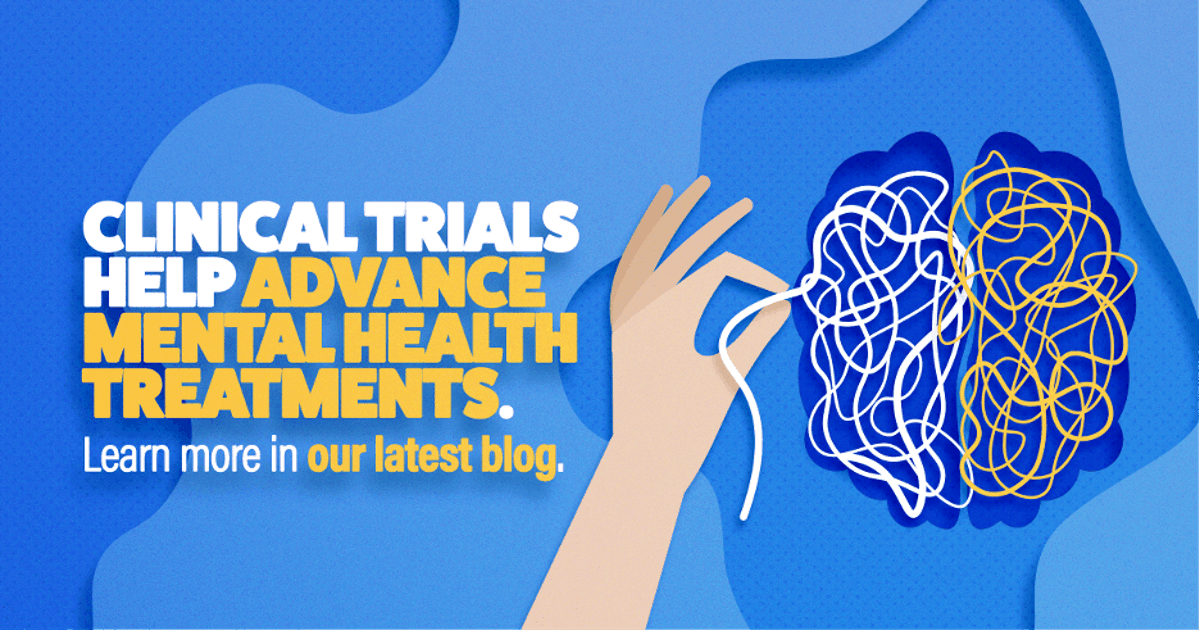May is Mental Health Awareness Month. Although 26% of U.S. adults have a diagnosable mental disorder each year, these disorders are often misunderstood. For many reasons ranging from lack of easily accessible mental healthcare to the stigma surrounding mental illness, over half of adults with mental illness do not receive treatment. With this in mind, researchers are continually evaluating new therapies through clinical trials in hopes of finding more effective options. Here’s information about some of the most common mental illnesses being studied in trials.

Anxiety
An estimated 40 million U.S. adults suffer from a disorder that falls under the category of anxiety disorders, making it the most common type of mental health disorder in the country. Some of the conditions that fall under this category are generalized anxiety disorder, panic disorder, obsessive-compulsive disorder, and post-traumatic stress disorder.
Depression
Though depression is a mental disorder, it can have many physical implications. For example, people with depression have an increased risk of coronary artery disease. Depression also often accompanies many other illnesses like cancer, diabetes, strokes, etc.
ADHD
On average, ADHD is diagnosed around the age of 7. Symptoms include many behaviors like fidgeting, excessive talking, and inability to pay attention. As a result, many people think of ADHD as an illness that only affects children and don’t realize it often lasts into adulthood.
Schizophrenia
Compared to other mental conditions like depression and anxiety, schizophrenia is much less common, but it can be incredibly debilitating. This condition can make it hard to think clearly and can cause hallucinations and delusions. Because it’s severe and chronic, treatment is essential, but it’s likely that about two-thirds of people with symptoms do not seek treatment.

There is no cure for mental illness, but mental health professionals can often effectively treat mental disorders with medications, psychotherapy, or a combination of these or other techniques. Clinical trials are also often enrolling to explore new medications and treatment options. To learn more about contributing to the advancement of mental healthcare by participating in clinical research studies, click here to view a list of opportunities in your area.
Sources:
https://www.mhanational.org/issues/state-mental-health-america
https://www.hopkinsmedicine.org/health/wellness-and-prevention/mental-health-disorder-statistics
https://www.dbhutah.org/the-5-most-common-mental-disorders/
https://www.dbsalliance.org/education/depression/statistics/
https://screening.mhanational.org/content/mental-illness-curable/
https://www.cdc.gov/adhd/about/?CDC_AAref_Val=https://www.cdc.gov/ncbddd/adhd/facts.html
https://www.healthline.com/health/adhd/facts-statistics-infographic

